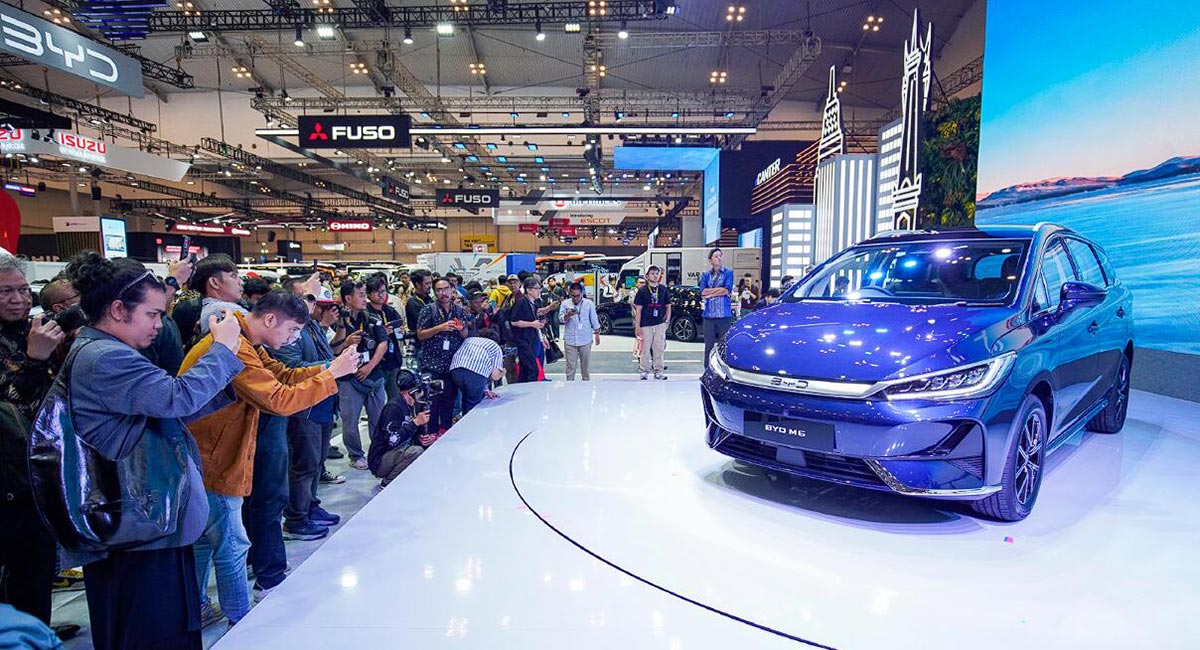Chinese EV Brands Surge Ahead in Indonesia’s Auto Market
Chinese electric vehicle (EV) manufacturers are rapidly gaining market share in Indonesia, Southeast Asia’s largest automotive market. Brands such as Wuling, BYD, and Chery are challenging Japanese dominance by offering affordability, advanced technology, and stylish designs.
While Toyota, Honda, and Mitsubishi maintain leadership in conventional and hybrid vehicles, the rise of Chinese EVs highlights shifting consumer preferences in a market increasingly influenced by sustainability and innovation.
Rising Popularity of Chinese EVs
The affordability and practical features of Chinese EVs have made them popular among Indonesia’s growing middle and upper-middle classes. For example, Wuling’s Air EV, priced at approximately IDR 200 million (USD 12,600), appeals to middle-income consumers, while the BYD Dolphin and Chery Omoda E5 cater to wealthier buyers.
Syakur Usman, an automotive observer, attributes this trend to Indonesia’s globally minded consumers who are already familiar with EVs from their travels abroad. These consumers are less daunted by Indonesia’s limited charging infrastructure, he added.
Market Dynamics and Government Incentives
Despite EVs accounting for only 5% of Indonesia’s total car sales in 2024, analysts see vast growth potential in a country with over 270 million people. Supporting this trend are government policies, including reduced luxury taxes and import duties introduced in 2023, which have made EVs more accessible.
Chinese brands now command an impressive 80% of Indonesia’s EV market. Companies like BYD and Wuling have capitalized on this momentum, reporting sales of 11,000 and 9,000 units, respectively, this year. BYD’s October sales alone reached 2,488 units, placing it sixth in total vehicle sales, according to the Indonesian Automotive Industry Association (Gaikindo).
To further boost local EV production, the government has mandated that 40% of EV parts be domestically sourced by 2026, rising to 80% by 2030. This policy aims to develop Indonesia’s EV ecosystem, generate employment, and stimulate the local economy.
Challenges for Japanese Automakers
Japanese automakers like Toyota and Honda have been slower to adopt fully electric models, focusing instead on hybrids as a transitional technology. Toyota officials argue that hybrids better suit Indonesian consumers currently hesitant about battery electric vehicles.
However, automotive analysts like Syakur Usman note that Chinese companies’ lack of legacy technology has allowed them to innovate quickly, making them well-suited to dominate Indonesia’s developing EV industry.
Future Outlook for EVs in Indonesia
The Indonesian government’s emphasis on tax incentives, including luxury goods tax and VAT exemptions, aims to make EVs and hybrids more affordable. However, environmental NGOs like Walhi argue that promoting EVs alone does not address broader environmental challenges, such as industrial emissions and coal reliance.
For Indonesia’s EV market to flourish, automakers must focus on competitive pricing, public awareness, and infrastructure development. With investments like BYD’s USD 1.3 billion factory in West Java, which aims to produce 150,000 vehicles annually, the future of Chinese EVs in Indonesia looks promising.
Read More






 Saturday, 24-01-26
Saturday, 24-01-26







